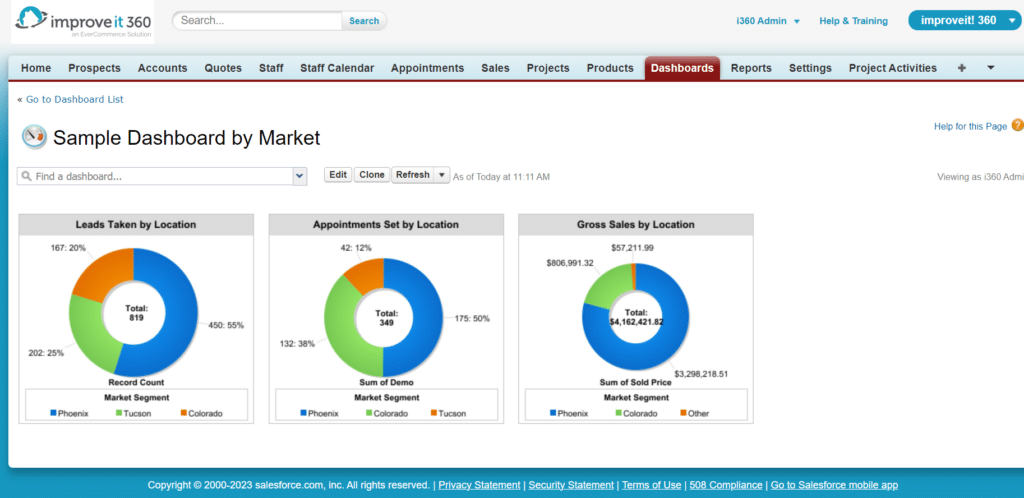
Franchising a home improvement or remodeling business offers a lucrative opportunity for entrepreneurs. It can help businesses expand their brand and tap into the growing demand for home improvement services.
Franchising is popular in the home improvement sector for several reasons:
- A low barrier to entry allows entrepreneurs to leverage an established brand and reduce risks.
- Home improvement businesses benefit from economies of scale. As the remodeling franchise network expands, the business gains buying power and ensures quality.
- Franchising provides a structured framework for growth. This framework includes operating systems, advertising, training, and support.
- Franchising offers opportunities to expand the customer base and deliver excellent services.
How Do Franchises Work?
Home improvement franchises are a unique business model. The franchisor partners with franchisees who purchase the rights to operate a franchise unit. The franchisor grants the franchisee the use of its brand, trademarks, and its very own business systems in a specific location for a set period.
The franchisee pays an initial investment fee and ongoing royalty fees. These cover training, support, and the use of intellectual property. Home improvement franchises benefit from comprehensive guidelines and operational systems provided by the franchisor. They also benefit from ongoing support in areas like site selection, marketing, and training.
Another advantage for home improvement franchises is the collective buying power of being part of a larger network. Franchisors negotiate contracts with suppliers, allowing franchisees to access preferred pricing and a dependable supply of materials. This helps reduce costs and maintain product quality across the franchise network.
Franchisors also enforce strict quality control measures. These measures ensure brand consistency and protect the home improvement franchise’s reputation. They conduct inspections and provide guidelines to uphold established standards. California Closets, the California closet company, is an example of a business operating through a franchise location network. This structure ensures personalized service and expertise in each local market.
Home improvement franchise agreements are legally binding contracts that outline the franchisor and franchisee’s rights and responsibilities. These agreements cover various aspects such as duration, territorial rights, fees, initial investment, termination conditions, and intellectual property usage. They clearly describe expectations and serve as the foundation for the franchisor-franchisee relationship.
Franchising vs Licensing
Franchising is a business model where franchise owners use the franchisor’s brand and system. It involves ongoing fees after the initial investment and franchisor control over operations. There is an emphasis on brand consistency and quality standards, with more regulations.
Licensing, on the other hand, grants permission to use intellectual property with fewer requirements. While there is more flexibility and customization for licensees, there is less comprehensive support.

What Makes Your Business Franchise Worthy?
Thinking about franchising your home improvement business? Consider these key factors that make a business a prime candidate for franchising:
- Established and proven system: A remodeling/home improvement business needs a solid track record of success and profitability, a well-defined system for quality services, a strong brand presence, and a proven business model that consistently satisfies customers.
- Scalability and replicability: Standardized processes, procedures, and systems must be easily replicated across multiple locations. At the same time, you must ensure consistent quality and customer experience.
- Unique selling proposition (USP): A USP in the remodeling/home improvement industry could be a specialized service, innovative techniques, superior craftsmanship, or a strong focus on customer satisfaction.
- Strong brand identity: Businesses must resonate with customers with a recognizable logo, consistent messaging, and a positive reputation.
- Comprehensive training and support: A franchising company should have a program to train new franchise owners in all aspects of the business, including operations, marketing, and customer service. Regular communication, field assistance, and resource access are crucial for franchisees’ success.
- Profitability and return on investment (ROI): When exploring home improvement franchise opportunities, it’s crucial to assess their financial viability and profit potential. This includes a clear understanding of the initial investment required, fees, and revenue streams.
Franchise at scale with complete visibility.

Steps to Franchise Your Home Improvement Business
There are several important steps you’ll need to take, aside from the initial investment, to become a remodeling franchise. Here is a list of key actions to consider when franchising your home improvement business:
- Evaluate the business model: Thoroughly assess how you will duplicate and expand your home improvement business. Consider market potential, profitability, and uniqueness. Identify core elements that can be standardized and taught to franchise owners.
- Develop franchise plan: Create a comprehensive roadmap outlining objectives, target market, fees, support services, and growth strategy. This plan will guide franchising efforts and inform potential franchisees.
- Seek legal and financial advice: Consult experienced franchise attorneys and financial advisors to ensure compliance with laws, create necessary documents like the Franchise Disclosure Document (FDD), and determine fees. These fees include the initial investment, royalty structure, and financial projections.
- Training and support systems: Establish comprehensive training programs, manuals, and procedures to equip franchisees. Consider dedicated support teams or online resources for ongoing assistance.
- Marketing and recruitment: Utilize various channels to attract potential franchisees. You’ll want to highlight the unique aspects and benefits of joining the home services franchise.
- Select and train franchisees: Implement a rigorous selection process to choose qualified franchisees who align with your brand values. Provide thorough, ongoing training to ensure the effective operation of franchise units.
- Operations and ongoing support: Offer continuous assistance through communication channels, field visits, and education programs. Address concerns, provide guidance, and share best practices. This will go a long way toward ensuring franchisee satisfaction and network growth.

Pros & Cons of Franchising Your Home Improvement Business
Franchising your home improvement business can offer several advantages. At the same time, franchising can pose a variety of challenges.
Pros
Franchising offers many benefits for your home improvement business, including:
- Accelerated expansion: Partnering with franchisees who invest in and operate their units leverages their capital and local market knowledge. This can produce rapid growth compared to opening company-owned branches.
- Retirement possibilities: Revenue from franchise fees and ongoing royalties can be a passive income stream. You can sell the franchise network or individual home improvement franchises when you retire, creating an asset for your future financial security.
- Shared risk: Franchisees assume the financial risks associated with their specific locations, including the initial investment. This reduces the burden on you, the franchisor, and also allows for flexible resource allocation. The franchisee’s personal stake in their business success motivates them to work hard and maintain the brand’s reputation.
Cons
While franchising has numerous advantages, there are potential drawbacks to consider:
- Brand dilution: Maintaining consistency becomes challenging as franchise units increase. Implementing quality control measures, ongoing training, and communication channels mitigates this risk.
- Loss of control: Franchisees have autonomy in certain decisions. This requires a balance between support and ensuring compliance with standards.
- Upfront initial investment: Developing the franchise system is costly, including the initial investment. Continuous help and communication also require dedicated resources.

Managing a Home Improvement Franchise Business
Leading a home improvement franchise business involves overseeing all the moving parts to ensure the smooth operation and success of the franchise network.
Infrastructure
Establishing crucial infrastructure is vital for franchising a home improvement business. This involves the initial investment, hiring specialized employees, and acquiring physical resources to support the franchise network. Franchise support staff need guidance and training from franchisees and a dedicated marketing team to create campaigns to attract customers.
Creating a repeatable customer service infrastructure is essential for brand consistency and customer satisfaction. Standardized processes and guidelines ensure an excellent customer experience across franchise locations. Consider the following:
- Implementing customer service training programs for franchisees and their employees.
- Establishing clear communication channels for handling customer inquiries and complaints.
- Developing customer feedback mechanisms to continually improve the quality of service.
Home improvement franchises can deliver a positive and consistent customer experience by prioritizing fostering customer loyalty and driving business growth.
Software
The right software can enhance efficiency and organization when managing a home improvement or remodeling franchise. A robust Customer Relationship Management (CRM) software is a valuable service as it provides a centralized platform for managing customer interactions, sales pipelines, and marketing campaigns.
Home improvement franchise CRM software can provide specialized features and functionalities to support franchise operations, including lead management, appointment scheduling, project tracking, and reporting. Implementing CRM software tailored to the home improvement industry can streamline processes, improve communication, and drive growth for the franchise network.
Marketing & Branding
Marketing is crucial for home improvement franchises. It requires a unified strategy to maintain a steady business flow.
Home improvement franchises can attract customers and set themselves apart by implementing branding elements, such as logos and messaging, to establish a strong identity. Customer service also serves as a marketing tool, generating positive experiences, word-of-mouth referrals, and loyalty.
Home improvement franchises must prioritize training and brand standards to maintain consistency and minimize brand dilution. Ongoing encouragement and clear style guidelines ensure staff alignment and network-wide consistency.